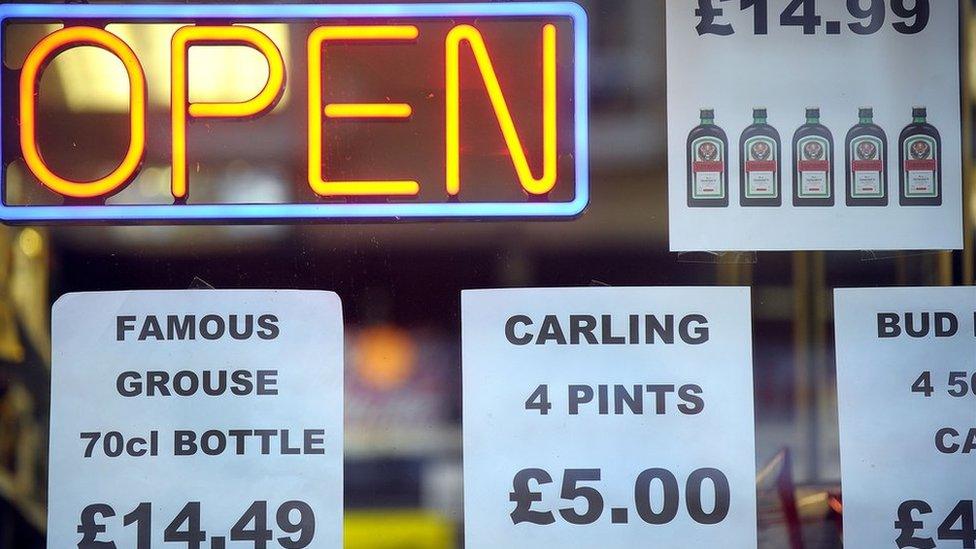Coronavirus: Alcohol fears amid lockdown boredom
- Published
"Looking forward to a drink at the end of the day was something that I was doing a lot more often"
People could develop long-term heavy drinking habits as a result of self-isolating at home, a charity fears.
Over a quarter of adults in Wales who drink have increased their consumption since the coronavirus restrictions were brought in, according to research by Alcohol Change UK, external.
Sales of alcohol jumped 31% in March, ahead of overall supermarket sales.
The charity urged people to think about how much they were drinking during the lockdown.
In March, pubs, restaurants, bars and clubs were closed as part of strict measures to curb the spread of coronavirus, and people have been unable to socialise with those outside their own homes.
Research from the charity suggests many people are now drinking in their homes.
But it said about a third of those who drink have cut down, or stopped drinking all together during lockdown.

'I realised that wasn't something that I wanted to happen'
Meg Payne has never been a heavy or frequent drinker, but said she noticed she was drinking more regularly out of "boredom" during the restrictions.
The 23-year-old, who lives with her parents in Cardiff, has been furloughed through the UK government job retention scheme.
She said she found herself drinking on evenings she normally would not. To combat this, she developed a routine and said that exercise and online workouts helped.
"I did find that looking forward to a drink at the end of the day was something that I was doing a lot more often," she said.
"At the start of this quarantine and lockdown period, I was drinking more," she said.
"It probably got to two weeks in, when I sort of realised and took a look at it and I realised that wasn't something that I wanted to happen."
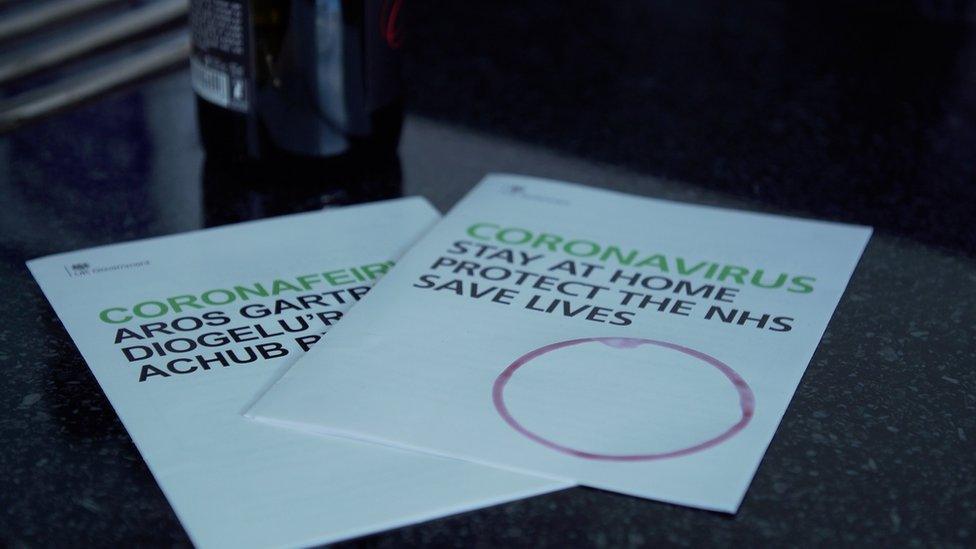
Andrew Misell, director for Wales at Alcohol Change UK, said there were concerns that more people may get into habits of heavy drinking which could last for the long term.
The charity said the number of people visiting their website for help was up nearly 400% in the past month, compared to the same period last year.
"Even those of us who perhaps aren't in such immediate danger are feeling the strain. I think an awful lot of us realised how much we really liked getting out of the house," he said.
Alcohol sales in UK retailers surged 31% in March, ahead of overall supermarket sales, which rose 10.3% in the same period, according to Office for National Statistics figures.
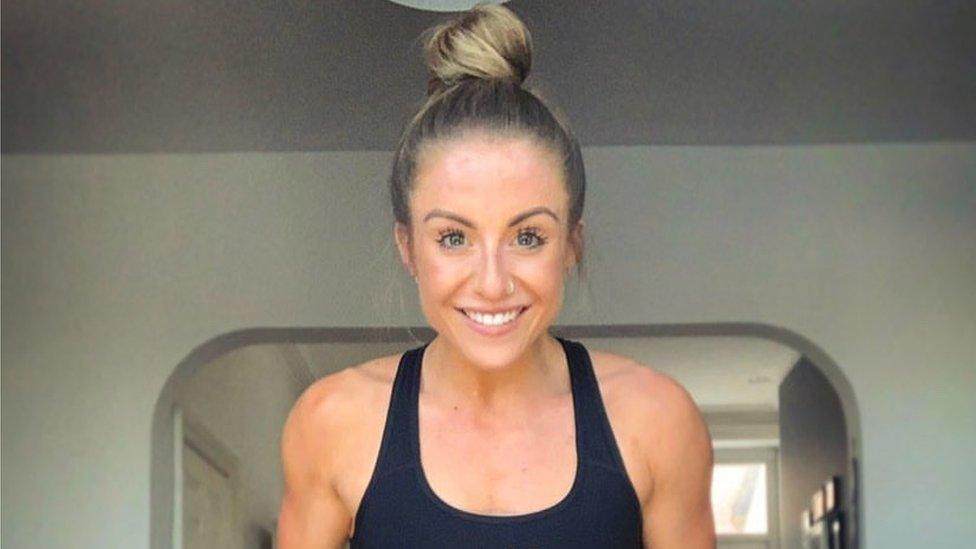
Personal trainer Emily Tucker said exercise and learning new skills could stop people reaching for the bottle out of boredom
Cardiff-based personal trainer Emily Tucker said a rise in online drinking challenges could lead to heavier and more regular drinking.
She said a perception that people needed to be productive with their time during isolation could make people feel pressurised.
The 28-year-old is offering live workouts on Instagram and said exercises and learning new skills could help stem boredom.
"If you feel [alcohol is] starting to become your go-to source of entertainment, I would definitely look into the online content that's available," she said.

EASY STEPS: How to keep safe
A SIMPLE GUIDE: What are the symptoms?
GETTING READY: How prepared is the UK?
TRAVEL PLANS: What are your rights?
IN-DEPTH: Coronavirus pandemic

"I know people are offering language lessons online for free. There are people doing yoga and mobility fitness, cooking - there's so much available."
"What's really important is that you are keeping in touch with people and making sure that you're okay, it doesn't have to revolve around alcohol," she said.
- Published20 March 2020

- Published26 April 2020

- Published21 March 2020
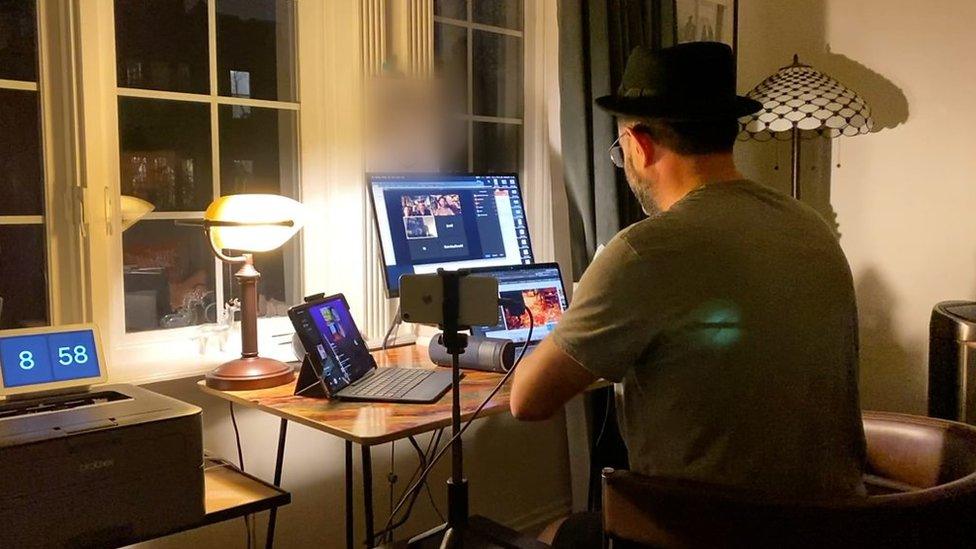
- Published20 March 2020
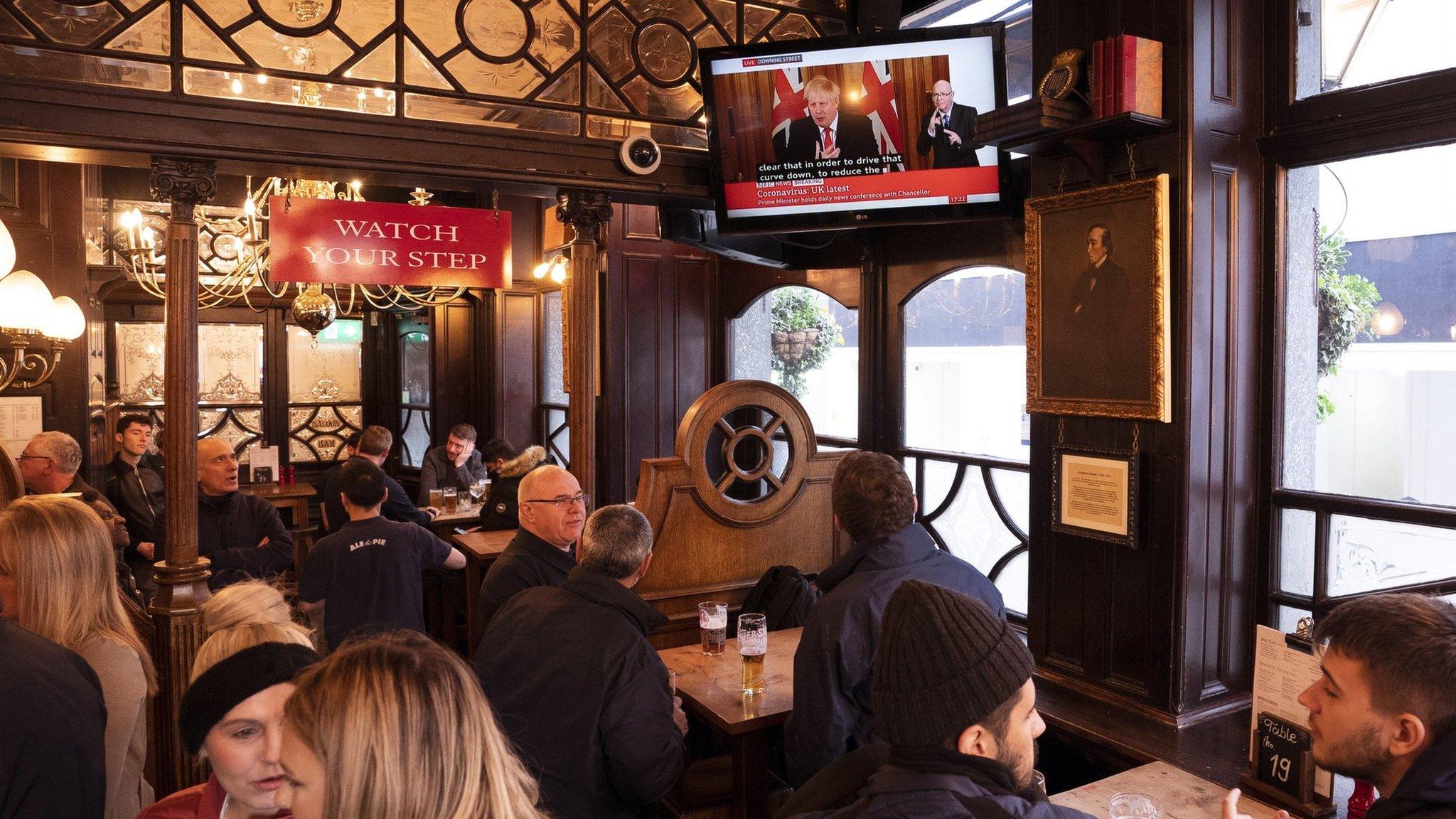
- Published2 March 2020
